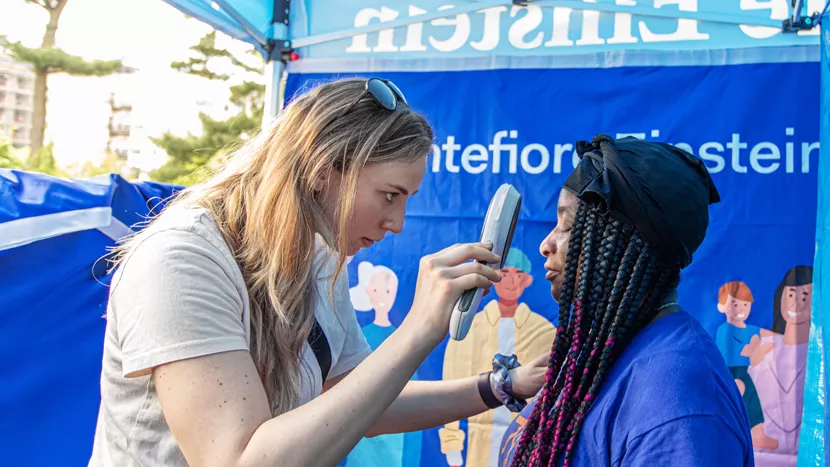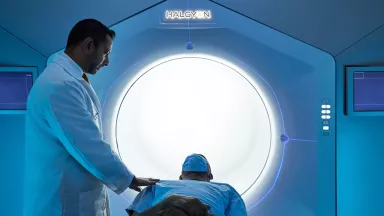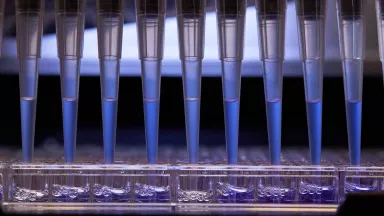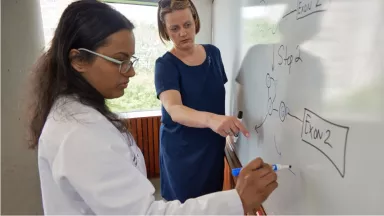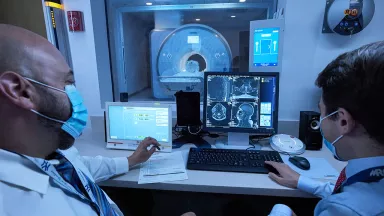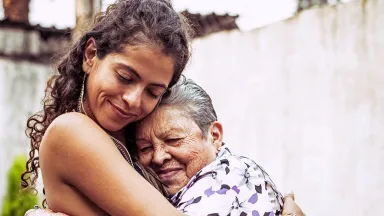Access to Care & Clinical Trials
Montefiore Einstein Comprehensive Cancer Center believes that everyone should have access to the very latest oncology treatments. We’re committed to advancing patient care through research and science, and providing the best possible care equitably to all patients.
It is part of our mission to ensure that everyone in the communities we serve can access the care they need. Health equity is a cornerstone of the work we do. Our research breakthroughs continue to lead to transformative cancer treatment. We believe patients of all backgrounds deserve equal opportunity to benefit from our care and to take part in our promising clinical trials.

Access to Cancer Care & Prevention
Our cancer center provides the vibrant and diverse communities we serve with the resources needed to make informed decisions about their health, from cancer screenings and advanced cancer treatment options to supportive services, including dedicated cancer navigators offering step-by-step guidance.
We also provide health education through a variety of community programs and events.
Our care teams work tirelessly to remove barriers to cancer care and to improve access to cancer clinical trials.

Access to Cancer Clinical Trials
At Montefiore Einstein Comprehensive Cancer Center, we strive to make sure our research reflects our patient population. This leads to knowledge that provides better access, care and outcomes to all patients.
Annually we treat over 5,500 new cancer patients with over 200 different types of cancer and are involved in more than 300 clinical trials. Some of our recent trials have revealed incredible findings helping to transform cancer care.
We have one of the nation’s most rigorous review processes to ensure these trials are conducted ethically and with each participant’s wellbeing prioritized and ensured.
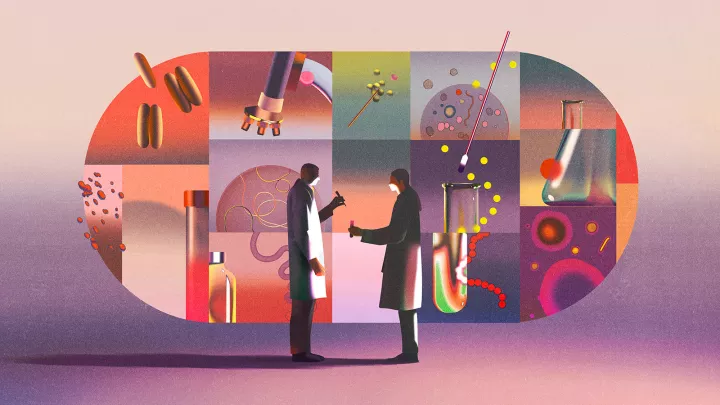
Cancer Clinical Trials
- Blood & Bone Marrow Cancers
- Brain, Spine & Central Nervous System Cancers
- Breast Cancer
- Childhood Cancers
- Endocrine System Cancers
- Gastrointestinal (GI) Cancers
- Genitourinary (GU) & Urologic Cancers
- Gynecologic Cancers
- Head & Neck Cancers
- Kaposi Sarcoma & AIDS-Related Cancers
- Lung & Chest Cancers
- Prostate Cancer
- Sarcomas
- Skin Cancer
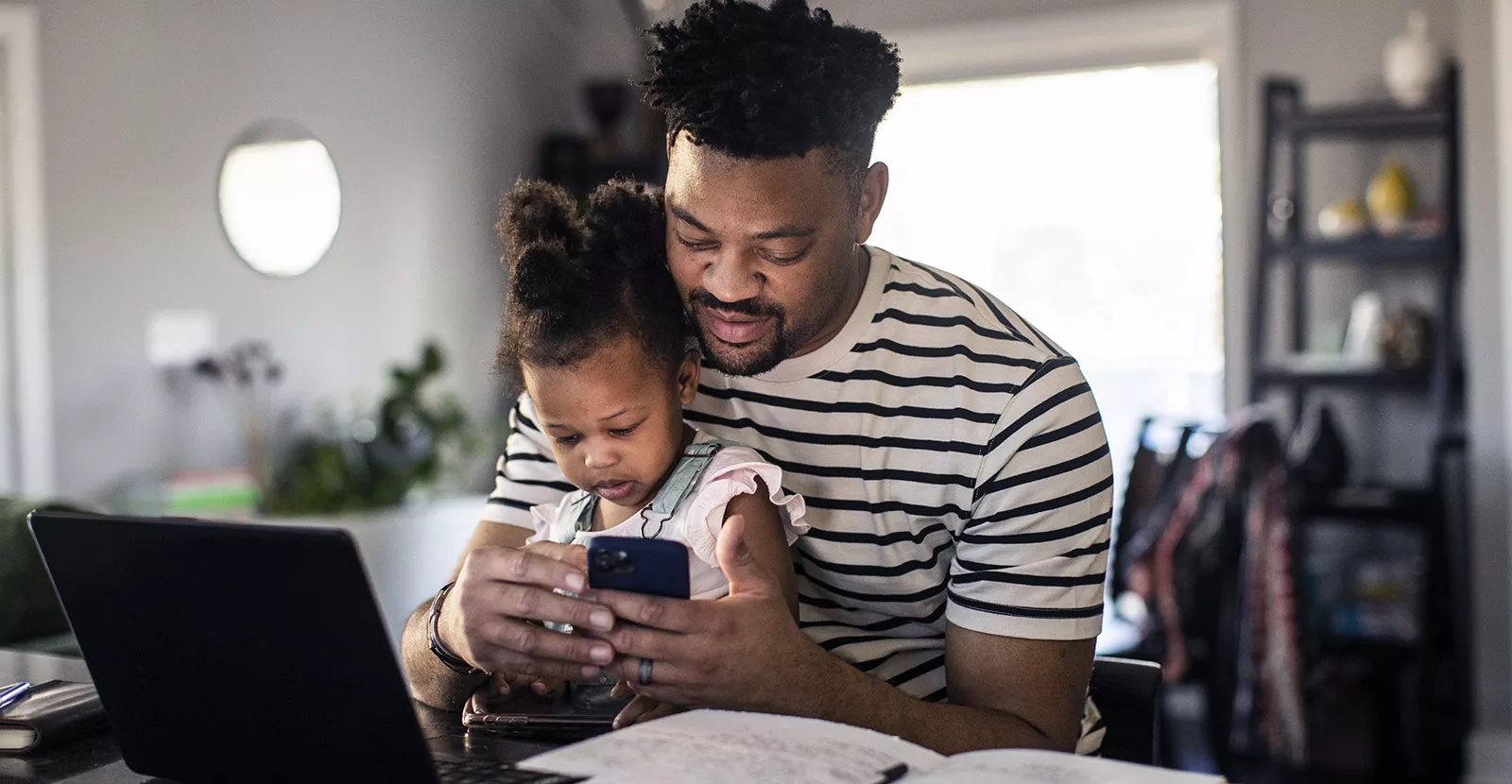
Community Advisory Board
This group includes community members, representatives from local government agencies, healthcare leaders and other industry leaders. The Community Advisory Board—together with cancer center team members—focuses on specific goals related to cancer prevention, screening and treatment.
Education & Information Initiative
Our team is part of Bridging Research, Accurate Information and Dialogue (BRAID). This initiative—originally developed to address community concerns about COVID-19 vaccines—now focuses on eliminating misunderstandings and mistrust of health information related to clinical trials. The BRAID model uses community influencers to facilitate discussions and overcome negative perceptions about clinical trials.
The BRAID model uses a technique called motivational interviewing (MI), an evidence based approach to behavior change. Clinicians talk with patients to better understand their reservations and provide them with science-based information to answer concerns and remove doubts.
Community Access to Cancer Screening & Prevention
We get a head start on preventing cancer by improving access to care long before a diagnosis. We offer a variety of cancer screening and prevention programs, including breast cancer, lung cancer, prostate cancer, and skin cancer screening, to name a few.
